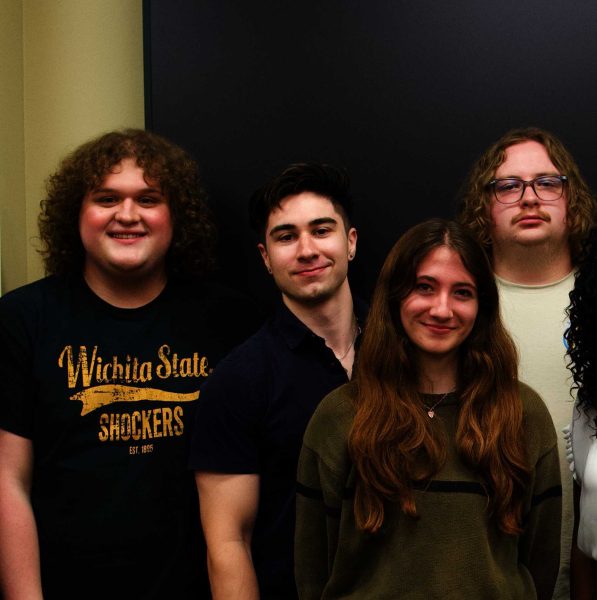College budgets make healthy lifestyles difficult
College students across the country struggle with obtaining the necessary nutrients for a balanced diet, dieticians say. This, combined with a lack of sleep, is leading students to be less healthy and more at risk of getting sick, especially with flu season rapidly approaching.
“Carbohydrate is one you have to have to get energy for your brain so you can do well with thinking and so forth,” Ann Hunter, Wichita State professor and dietician, said.
The cost of healthier food choices makes it difficult for some students having to budget. Items high in sugar, fat or empty calories tend to be less expensive and easier to prepare for those with busier schedules.
“I end up spending more money than I’d prefer,” senior Melissa McGinty said. “But I also end up wasting money because it’s difficult to use everything before it spoils when you spend the majority of the day at school and doing homework.”
WSU offers an alternative for students in the form of Hunger Awareness. The initiative focuses on those on campus who struggle to purchase food, and advocates for healthier options. Studies are currently being conducted to figure out exactly how many people on campus are in need of help.
Hunter says that WSU is within the normal limits as far as health on a college campus goes, but there is always room for improvement. Efforts by organizations such as Hunger Awareness help counteract malnutrition and prevent students from getting sick because of their diets. Lack of these nutrients can upset a student’s daily life as well.
“A danger is of infections,” Hunter said. “They’re going to have colds and the flu all the time. They won’t have stamina; they will not be able to do as well on tests and things like that. They’re just not up to par.”
Not getting enough of the essential vitamins and minerals one needs can also lead to the inability to cope with stress, Kelly Hoffenheim, a dietician at Pennsylvania State’s Health Services, said.
“Malnutrition does not necessarily mean a person is starving,” she said. “It can mean they are intaking empty calories, but not receiving a nutrient-balanced diet.”
People who are malnourished may not fit into the idea some students have. It is possible for them to be underweight and sickly, but also possible for them to be overweight and otherwise healthy.
With the Fast Break in the Rhatigan Student Center, students have access to smoothies, fruit, protein shakes and an assortment of healthier snacks.
The Pita Pit on 32nd and Rock Road in Wichita is also looking to reach out to college students by offering cheaper, healthier alternatives when other food venues on campus may not be available. They will also deliver food to dorm rooms as late at 10 p.m.
“I’m an educator of 30 years and I’ve watched what poor nutrition has done to students,” owner Cammy Onek said. “I believe in healthy eating—feeding your brain because it’s basically the quarterback of your entire body.”
Long term effects of improper dieting can be detrimental to anyone, especially college students. Dieticians agree that working harder to eat healthier as well as get enough sleep will lower the risk of illness and improve functionality.
“At the end of the day, it’s easier and quicker to go pick up a salad or sandwich somewhere than to prep, cook and clean up a meal for only myself,” McGinty said. “And then I have to study.”
Hunter and dieticians everywhere are trying to encourage students to eat as healthy as possible to prolong their life, even if their schedules are hectic and the better food costs a little more.












